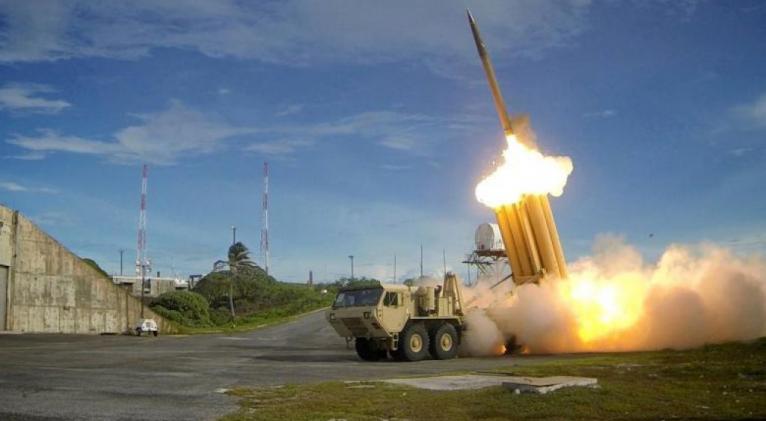South Korean President Moon Jae-in has ordered a probe into the presence of four additional launchers for the controversial U.S. THAAD anti-missile system in the country as the Defense Ministry failed to inform the new administration, his spokesman said on Tuesday.
RELATED: South Koreans Protest US THAAD Anti-Missile System as Installation Starts
The Terminal High Altitude Area Defense (THAAD) system was initially deployed in March in the southeastern region of Seongju to counter the perceived growing North Korean missile threat.
“The president was briefed on the fact that four THAAD launchers, in addition to the two deployed in Seongju, have been brought into the country,” Yoon Young-chan, chief presidential press secretary, said.
Yoon said Moon confirmed the information with Minister of National Defense and said it was "very shocking."
Moon had ordered an investigation into “how the launchers were brought here, who decided on it, why the ministry kept it secret and why it did not report the fact to the new government," Yoon added.
A ministry official denied the accusations, saying Wee Seung-ho, deputy minister for policy, had briefed Moon's national security adviser Chung Eui-yong on the issue Friday. Moon’s office refuted the statement, according to South Korea’s Yonhap news agency.
During his successful campaign for the May 9 presidential election, Moon called for a parliamentary review of deployment of the system, a decision made by his predecessor Park Geun-hye to help counter North Korea's missile threats.
In another controversy, U.S. President Donald Trump said last month that South Korea should pay for the US$1 billion defense system. The government then said according to the Status of Forces Agreement (SOFA), South Korea provided the site for the anti-missile system and other infrastructure while the U.S. would bear the cost of deployment and operation.
Local residents protested against the system, concerned that Seongju will become a primary target for North Korean missiles.
Neighbouring China also has been infuriated by the deployment of THAAD, arguing that the radar of the system could be used to spy in its territory and that it’s a threat to its national security.
In a meeting with Seoul's envoy to China Lee Hae-chan on Friday, China's top diplomat Yang Jiechi said China "hopes that South Korea can respect China's major concerns (and) appropriately resolve the THAAD issue," the official Xinhua news agency reported.














Add new comment